How to Choose the Right Beauty Equipment in 2025
A Comprehensive Guide for Salon Owners, Estheticians, and Home Users
Choosing the right beauty equipment isn’t just about following trends—it’s about making informed, strategic decisions that align with your business goals, client expectations, and U.S. regulatory requirements. In this guide, we go beyond the basics and explore what it really takes to build a treatment menu that works, no matter your budget.
Whether you're a salon owner opening your first location, expanding into advanced treatments, or even looking for safe, effective home-use tools, this article will give you the clarity and confidence to move forward.
1. What Is Beauty Equipment and Why It Matters
In the U.S. beauty industry, equipment plays a central role in shaping the client experience. Unlike skincare products, equipment delivers visible, measurable results through non-invasive or minimally invasive technologies. This is what sets professional treatments apart—and what keeps clients coming back.
💡 Categories of Beauty Equipment in the U.S.:
| Category | Common Functions | Best For |
|---|---|---|
| Facial Devices | Deep cleansing, hydration, lifting, acne reduction | Facial studios, estheticians |
| Anti-Aging Devices | Wrinkle reduction, skin tightening, collagen boosting | Med spas, dermatologists |
| Body Contouring Devices | Fat freezing, cellulite reduction, EMS sculpting | Body clinics, wellness centers |
| Laser-Based Devices | Hair removal, pigmentation treatment, skin resurfacing | Medical aesthetics |
In the U.S., effectiveness, safety, and compliance are non-negotiable. Clients expect real results, fast—but they also expect transparency and professionalism. That’s why choosing the right equipment is a cornerstone of a successful beauty business.
2. How to Choose Beauty Equipment in the U.S. – A Practical Checklist
✅ 1. Regulatory Compliance First
Before anything else, confirm whether the device:
-
Requires FDA clearance (especially for laser, RF, or IPL machines)
-
Has UL or ETL electrical safety certification for the U.S. market
-
Comes with English manuals, warranty documentation, and access to support
🔍 Tip: You can search the FDA Establishment Registration & Device Listing to confirm if a device is legally cleared.
✅ 2. Define Your Service Strategy
Ask yourself:
-
Am I offering high-ticket, results-driven services (e.g., non-surgical facelifts)?
-
Or am I targeting frequent, maintenance-based treatments (e.g., hydration facials)?
-
Do I want multifunctional devices or highly specialized machines?
🔍 Think Like a Client: A med spa client expects clinical results, while a facial studio client may want gentle, recurring care.
✅ 3. Consider Staff Skill Level
A powerful device is useless without proper training. Look for:
-
Machines that include training or certification programs
-
Intuitive interfaces, especially if hiring junior staff
-
Clear treatment protocols and safety guidelines
🔍 Pro Insight: Many top brands offer online or in-person training for U.S. buyers—this adds credibility to your service.
✅ 4. Evaluate ROI with Realistic Projections
Let’s say you buy a $6,000 hydrodermabrasion + RF system:
-
Charge $130 per treatment
-
Book 6 clients/week = $780/week revenue
-
Break-even in under 2 months
Ask vendors for:
-
Before/after client cases
-
Expected treatment frequency
-
Maintenance costs and part replacements
3. Equipment Planning for 3 Different Budget Scenarios
Let’s walk through realistic salon types with different investment capacities, including what kind of equipment suits each and why.
💎 Luxury Med Spa (Budget: $30,000–$100,000+)
Client Profile: Affluent, results-focused, willing to pay premium prices
Goal: Offer advanced, clinical-level treatments
Recommended Devices:
-
FDA-approved laser hair removal machine (e.g., Candela GentleMax Pro)
-
HIFU skin lifting system (non-invasive facelift)
-
Cryolipolysis machine for body sculpting
-
Skin analysis system to customize treatment plans
Pro Tip: Aesthetic differentiation matters. Consider devices with touch-screen displays, stylish casings, and client-facing tech (e.g., LED visualization, progress tracking).
🌿 Boutique Beauty Studio (Budget: $10,000–$20,000)
Client Profile: Mid-range spenders who value quality and service
Goal: Deliver visible results while maintaining flexibility
Recommended Devices:
-
Multifunctional machine: Hydrodermabrasion + RF + LED
-
Mid-range microneedling device (cordless or pen-style)
-
Compact EMS sculpting or cavitation unit
Pro Tip: Position your space as a “results-driven” alternative to big spas. Equipment should balance cost-efficiency and credibility.
👩🔧 Solo Esthetician or Home Studio (Budget: <$5,000)
Client Profile: Locals looking for affordable, recurring services
Goal: Build client base and grow revenue sustainably
Recommended Devices:
-
Ultrasonic skin scrubber
-
High-quality LED therapy mask (red + blue light)
-
Compact RF lifting or cold hammer machine
-
Portable hydrafacial device (entry-level)
Pro Tip: Focus on experience. Lighting, aromatherapy, and ambience can elevate basic treatments when paired with decent equipment.
4. Portable Devices for Personal Use at Home
As beauty technology becomes more accessible, many users prefer doing treatments at home—especially in the U.S. where convenience is king.
Here are high-performance, user-friendly devices suitable for personal care:
| Device Type | Functions | Why It’s Popular |
|---|---|---|
| LED Therapy Mask | Acne reduction, collagen boost | Hands-free, safe, widely trusted |
| Microcurrent Facial Wand | Muscle stimulation, lifting | Anti-aging without needles |
| RF Facial Device | Firming, wrinkle reduction | Non-invasive, easy to use |
| Ultrasonic Scrubber | Deep cleaning, exfoliation | Ideal for oily or congested skin |
🔍 Note: Look for U.S.-based brands or retailers with proper labeling, warranties, and FDA registration when applicable.
5. Conclusion: Think Long-Term, Build Smart
Beauty equipment isn’t a short-term expense—it’s an asset. A carefully chosen machine can define your brand, increase client retention, and allow you to scale your offerings over time.
Key Takeaways:
- Prioritize compliance and safety—it protects your business.
- Match your equipment to your brand’s identity and clientele.
- Invest based on long-term results, not just cost or trendiness.
- Never overlook training and support—it’s part of the investment.
Whether you’re starting small or ready to launch a luxury experience, you now have a roadmap to make decisions with clarity and confidence.




Dejar un comentario